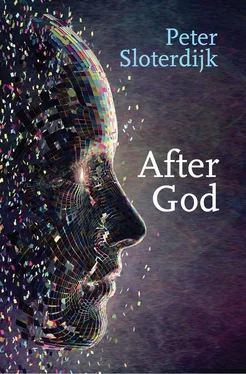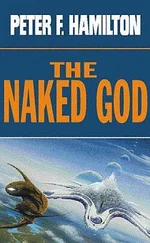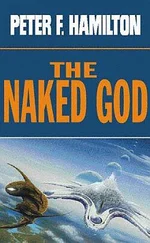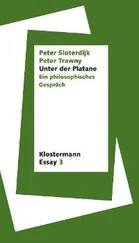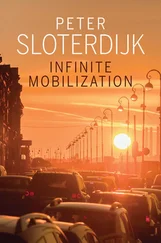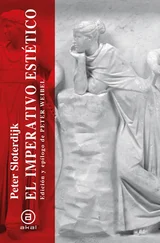In Lotario’s miserabilistic Summa , nothing that could be deployed against human existence on Earth has been forgotten. It reaches unerringly, from the “misery that is bound up with the entrance of the human being into the world,” though the “guilt that human activity and striving incur,” to the “wanton denouement of human existence,” which risks ending up in the “unspeakable plight of the damned” after the Last Judgment. In its attempt at completeness, this text on the murk and gloom of conditio humana can be read as a masterwork of pious hypocrisy. Already in the first lines, the author recognizes a grave objection to his opusculum, namely that it entertains the idea of an opposite exercise, in which, with the aid of Christ, the “dignity of the human being” should be emphasized. These lines articulate the constitutional hypocrisy of the cleric, who affirms his baseness the more he climbs the bureaucratic ladder. It may have been an accident that Innocent III never found the occasion to write a rebuttal. From a cultural–psychological perspective, it is more plausible that this omission classifies him as a prisoner of the persistent and momentous mood of world renunciation.
Nearly three hundred years were to pass before Pico della Mirandola’s Oratio de hominis dignitate [ Oration on the Dignity of the Person ] (1486). Measured against this text’s cosmophilic tendency toward cheerful optimism, Luther’s life and work mark a recursion to the society of the somber bishop of Rome, who reveled in images of human misery. Lotario’s hypocrisy, which is betrayed by the pleasure he took in exaggerating on the dark side, was not necessarily merely a feature of extreme Catholic Tartuffery. It mirrored the ambivalence of transcendent scrutiny. Those who were affected by it were never able to know whether it brought salvation or damnation.
When Nietzsche gave the earth a new name, he was thinking about the spheres of a broken participation in the “existent” – these spheres that, from an evolutionary perspective, were relatively new:
The ascetic treats life as a wrong path that he has to walk along backwards till he reaches the point where he starts; or, like a mistake which can only be set right by action – ought to be set right: he demands that we should accompany him, and when he can, he imposes his valuation of existence. What does this mean? Such a monstrous method of valuation is not inscribed in the records of human history as an exception and curiosity: it is one of the most wide-spread and long-lived facts there are. Read from a distant planet, the majuscule-script of our earthly existence would perhaps seduce the reader to the conclusion that the earth was the ascetic planet par excellence , an outpost of discontented, arrogant and nasty characters who harboured a deep disgust for themselves, for the world, for all life and hurt themselves as much as possible out of the pleasure in hurting – probably their only pleasure. 20
In his studies on Byzantine Christianity, Hugo Ball found the appropriate terms when he called the early friars of Upper Egypt “athletes of mourning” and the anchorites “athletes of despair.” 21His portrait of John Climacus stands under the motto: “It is good to disintegrate and to be with Christ.” 22
Max Weber seized upon Nietzsche’s intuitions when he ascribed the faintly parodic title of “religious virtuosos” to the spiritual heroes of the axial age, the protagonists of world renunciation, of self-rejection, and of resettlement to a blessedness that was not of this world. With their exercises that were eccentric in every possible sense of the word, these artists of a high-culture religio set standards by which subsequent generations had to direct themselves if they wished to learn from the claims of the masters. Indeed, only now does the concept of master acquire its pregnant meaning: that of teacher of something nearly impossible. 23
Whoever is taken by the evidence that being a human among humans is no longer sufficient can train to be a virtuoso of religio . In the future this will come down to reworking the raw materials found in the human being in the direction of a conformity to the cosmos, a conformity to nirvana, and a conformity to God. The individual who is humbled and spurred on by the absolute will thereby experience herself as the being who has a relation to what is without relation. The adventure of individualization begins with such alterations. Above the door to the world there is now the inscription: “Know thyself!” Under it are the lines: Etiamsi omnes non ego . Even if all run in one direction, I will not.
Everything that comes after the “axial age” is therefore, spiritually, an age of “virtuosos.” It forms the laboratory in which acute despair is distilled from a vague disgruntled mood. Psychic efforts extending beyond all rational measure grow from the concentration of despair. Ultimately, with the discreet help of the Highest, the effort turns into a relaxation beyond trivial humanity. This relaxation is sometimes called wisdom, sometimes holiness, sometimes illumination.
Martin Luther does not clutch the peaks of despair so tightly for the state of the soul. He contents himself with the conventional term “faith” ( fides ); yet he removes from the word its tone of relaxation. He redeploys it as if he were standing at the source of its meaning. He thereby recommends that the following be held for certain, beyond any established religio : that God, who sees human beings from without as from within, will in the end not only judge them according to the records, but also be merciful to the remorseful, in accordance with the promised grace.
2.3 The derivation of the Reformation from the spirit of tempered despair
It has often been noted, correctly, that Luther’s intervention reduced the ostentatious Roman Catholic papal church to a church that was, if not invisible, then at least inconspicuous. 24In this new church the priestly class was to be thoroughly disempowered. It offered as little space for a self-serving clerical apparatus as it did for an instituted theology that was right ex officio. It was based on the fundamental experience that had spread among the spiritual elite after the high-culture revolution – namely that the soul, in its insufficiency, stands alone and unarmed before the Highest.
Through the pathos of its sola gratia [by grace alone] credo, the Lutheran doctrine pushes to the extreme the eccentric positionality of the faithful. It demands of them an extreme degree of remorsefulness, which it explains to them at the same time that they cannot accomplish on their own. By urgently holding them to an ultimately impossible repentance, it forces them on the path toward a new version of hypocrisy. Being able to regret is, itself, already a work of grace. You should be lost, as if you were saved. Reformation thus essentially rhymes with reduction. This holds consistently for the Lutheran sphere, and even more so for the Reformed (whence it turned out that, in the long run, the Wittenbergians were not a patch on the Genevans when it came to hypocrisy). The vanishing point of the reduction consists in nothing but the question of how the faithful discover the Archimedean point at which despair over one’s salvation passes over into the certainty of having attained it. In Luther’s language, what has to be discovered is called “justification.”
Nota bene: systems of belief can be passed on so long as they are successful in making invisible the paradoxes from which they draw their power.
The basic figure of the axial-age revolution is hereby repeated; it should be made explicit once and for all how matters stand with the human being who realizes that he is dealing with a superworld that cannot be manipulated. Once the Highest has become incorruptible, the minds that wish to take seriously the idea of existing “in the truth” are forced to consider the initially prerevolutionary, then revolutionary question of what to do. Luther cast his vote on the matter long before Chernyshevsky and Lenin; and the decisive thinkers of the axial age did so long before Luther. It is not just the Enlightenment that can be predated by two and a half millennia; in point of fact, the Reformation, too, began around the middle of the first millennium before Christ.
Читать дальше
